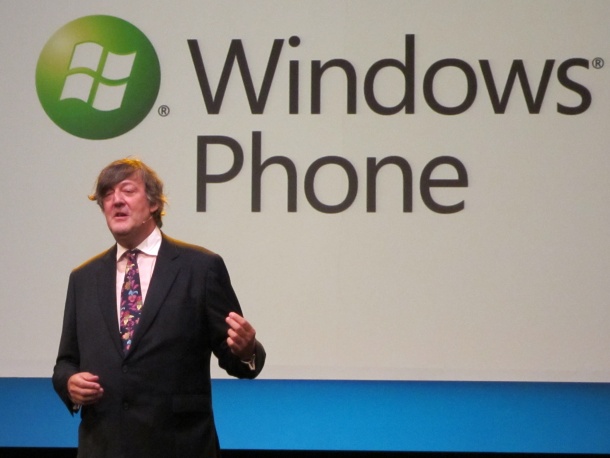Windows Phone 7 makes its debut

Microsoft has formally taken the wraps off its new mobile operating system, Windows Phone 7.
On Monday, Microsoft and its manufacturer partners showed off the first handsets that will go on sale in the UK on 21 October using the new mobile operating system: HTC's Mozart, Trophy and HD7 phones; Samsung's Omnia 7; and LG's Optimus 7. Other Windows Phone 7 devices from HTC will include a US-only handset — the HTC 7 Surround — and a productivity-centric, Qwerty-keyboarded handset called the HTC 7 Pro that will go on sale before the end of the year.
Windows Phone 7 is a complete break from Windows Mobile 6.5, its immediate predecessor, and it has no backwards compatibility to support apps built on Windows Mobile. It is also more consumer-focused, featuring multitouch and strong integration with Microsoft's Xbox Live games service. This sets it apart from rivals such as Apple's iOS and Google's Android.
At a London launch event, Apple fan Stephen Fry gave his first impressions of using a handset with Windows Phone 7. "My first feeling was that it was just fun to play with," noted Fry. "I never thought the day would come to stand on stage and praise Microsoft for doing something they can be proud of."
The Microsoft OS is structured around hubs of applications, which are grouped under categories such as People, Pictures, Games, Music and Video, Marketplace, and Office. Apps are represented onscreen in the form of 'tiles'. Tiles are dynamic widgets that constantly update to show, for example, the number of unread emails in the mail app.
Microsoft has refused to say how many apps are available at launch. However, the company's mobile chief Andy Lees told ZDNet UK at the launch event that Microsoft has "made sure the key applications are there".
Microsoft has set strict minimum specifications for Windows Phone 7 handsets. These are a dedicated Windows search key, a 1GHz processor, 8GB of onboard storage, an accelerometer with a compass, WVGA (480 by 800 pixels) screen resolution and a five-megapixel camera with a flash. The company has also limited the customisation that manufacturers can implement on their devices. For example, it has banned extensively tailored user interface skins such as HTC's Sense, which was used to make Windows Mobile more attractive to the user.
Lees also said that Dell will launch its Venue Pro Qwerty-keyboarded Windows Phone 7 handset in the UK, but it will be sold SIM-free and directly to the consumer, rather than via operators. As for other smartphones, the HTC Mozart will be offered by T-Mobile and Orange, the LG Optimus 7 will be available on Vodafone, while the Omnia 7 will be carried by T-Mobile, Orange and 3.
Unlike Windows Mobile, Windows Phone 7 does not support tethering or expandable storage, the latter of which is most commonly implemented in smartphones through microSD support. In addition, it does not support multitasking or — for now — Adobe's Flash media player. Cut-and-paste is not currently enabled, but it will be added in the first Windows Phone 7 update "early in 2011", Lees said.

Noted Apple fan Stephen Fry said at the London unveiling that Microsoft could be proud of Windows Phone 7. Photo credit: David Meyer